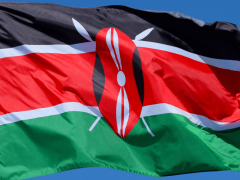The Gauteng High Court has ruled that Mango’s business rescue plan (BRP) cannot be implemented, finding that the plan would prevent the airline from properly paying its creditors.
Aviation Co-ordination Services (ACS), which provided services such as baggage screening, reconciliation and check-in, submitted an application to the Gauteng High Court which accused Mango and its business rescue practitioner, Sipho Sono, of attempting to implement a business rescue plan that would see creditors paid only a percentage of what they are owed.
ACS’s application
According to the proposed plan, Mango creditors would receive only 4.43 cents for every rand owed, which amounts to R44 300 for ever R1 million owed. Thereafter, regular creditors, excluding Sars and those with claims related to unflown tickets, would be paid a "top up" settlement payment for their claims.
“All of the remaining balance of the Claims of the remaining Concurrent Creditors are ceded to the Investor at face value thereof but for nominal consideration,” states the plan.
ACS argues that this clause effectively transfers control of outstanding debts to the investor, resulting in creditors losing the right to recover funds directly.
The plan also proposed that if 75% of creditors voted in favour, the remaining creditors would lose the legal right to enforce their claims.
Mango’s debt
At the time Mango entered business rescue in July 2021 it owed approximately R2,91 billion to its creditors. ACS is owed over R23,3 million and was among the creditors who voted against Sono’s BRP, which was approved by 98% of the voting creditors.
Mango also has an unflown ticket liability of about R183m. Earlier this month, Sono announced Mango’s plans to compensate passengers with unflown tickets, if they registered on its website, with full value refunds should the deal with the investor go ahead.
The verdict
On June 17, Judge Denise Fisher ruled that debt cession outlined in the plan was invalid and declared that the business rescue plan could not be implemented.
“The plan, shorn of its complexity, amounts to nothing more than the confiscation of the creditors’ claims in order that they be transferred by Sono to an investor who pays no value for them or the shares,” said Fisher.













